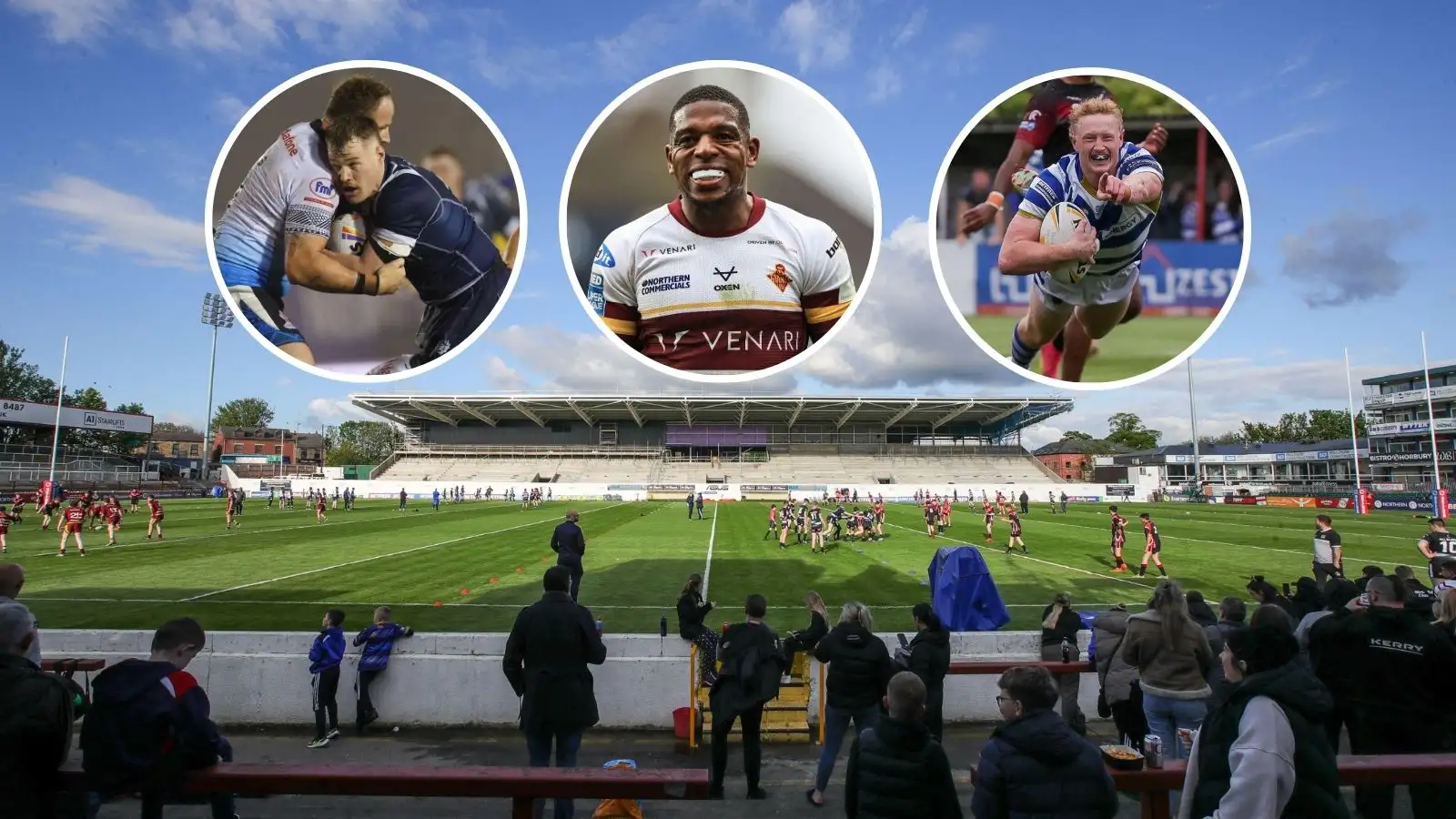How Wakefield Trinity are using a purpose-built data analytics system to shape their recruitment for 2024 and beyond

Luke Bain (left circle), Jermaine McGillvary (middle circle) & Lachlan Walmsley (right circle) have all been recruited by Wakefield Trinity ahead of 2024 - Alamy
The prospect of heading up Wakefield Trinity’s recruitment for 2024 feels like one of the most exciting jobs in rugby league at the moment: a sentence nobody could have envisioned writing a few months ago.
After all, new Trinity owner Matt Ellis has repeatedly promised a Super League-size budget for a Championship club next year – and this week, he went one further and said he’d put £100,000 aside for one major signing to round off their new-look group that will take to the field under Daryl Powell.
But Wakefield’s business so far has not been a frenzied free-for-all. Behind every decision, and every single new signing, there is a thought and process – as well as thousands upon thousands of statistics and analytics.
More and more clubs are using data to form their opinion of players, or at least part of their opinion. While assessing a player’s character and personality is important, so too are the metrics that potentially set them apart from other players in their position.
How Wakefield Trinity are using a purpose-built data analytics system to shape their recruitment for 2024
Wakefield’s head of recruitment, Ste Mills, has devised a system that he feels will set Trinity apart from the rest not just this year, but in the years to come, too.
“It’s a system designed by myself,” Mills told Love Rugby League. “We get all the metrics from the stats companies like most other clubs, but there’s also metrics we’ve come up with and that all feeds into our unique system.
“It can be anything, from their on-field stats to how they perform in training in certain areas to their general fitness: it’s all covered. The main goal is to make sure no stone is left unturned.”
Trinity’s recruitment model doesn’t just cover elite-level rugby, either. It has already helped to unearth new signings including Toby Boothroyd and Luke Bain by collecting data and analytics from the lower leagues in Australia, among other countries.
“We’re completely and utterly worldwide,” Mills insisted. “We want to make sure we don’t leave any stone unturned.
“That’s the way we’re looking and I think that’s evidenced in someone like Toby – he’s come out of Jersey Flegg, the under-20s competition in Australia and Luke (Bain) has come from the Queensland Cup. I’m talking to Australians every single day, and I touch base with recruitment managers every day on both sides of the world.
“There’s qualification rules you need to adhere to, but I will guarantee we won’t miss anyone. I also guarantee that if there is anyone available on the market, then Wakefield Trinity will be in for them. We’ll be competing with the big boys to get some star players here, and that’s something we really wanted to change.
“We’ve built a system that allows us to compare every player all over the world. It’s how we utilise that to find players. But it gives us reassurance that we’ve got the foundations of what we’d like to see in a potential Wakefield Trinity player there in front of our eyes.
“It’s got research tools and it’ll compare anyone with whoever we want and it gives us a ranking system for players in positions and where they sit on metrics.”
An all-round view of potential recruits what Trinity strive for
However, Mills insists that much more consideration will be given to any potential new arrival than simply their scores in the data.
“Naturally, some players don’t come out great on data, and you’d sign them every day of the week. Some are mavericks, some are grafters, and it’s finding that balance. But the data backs up our instincts and our judgements.
“It means every aspect of the recruitment cycle is done, from the character references to the conditioners looking at them to make sure they’re right from a movement point of view.
“Some clubs are too heavily focused on age, but we’re not thinking like that at all. We’re looking at absolutely everyone and absolutely everything about them to make sure whoever comes through this door is the right fit for the squad and the club.”
READ NEXT: How new-look Wakefield Trinity are shaping up for 2024 under Daryl Powell with 25 players locked in